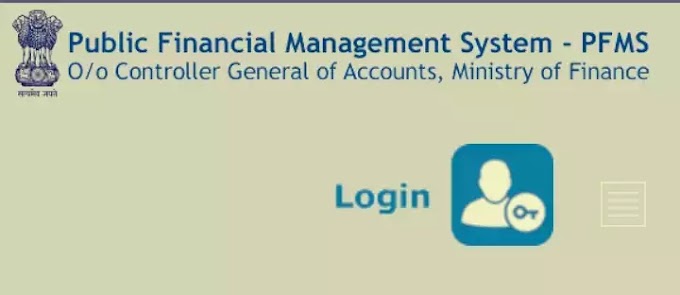Hey everyone, today we are here to disqus about CAA , NCR and NPR 2019 ? : Along With Advantage and Disadvantage of CAA for Indians .
However, the central government is not ready to step back on this.
The Citizenship Amendment Bill took the form of law with the signature of the President at the time of passing the bill in Lok Sabha and Rajya Sabha.
This law has opened the way for religious minorities of Bangladesh, Pakistan and Afghanistan to get citizenship of India.
Despite this, there are many questions about this law in the minds of countrymen.
Here we are answering every question related to this ...
Minorities of six religions of Pakistan, Bangladesh and Afghanistan coming to India on or before December 31, 2014 will not be considered as intruders.
The Citizenship Act, 1955 that prohibits illegal migrants from acquiring Indian citizenship.
One who has entered India without a valid passport or travel documents.
One who stays in India for more than his / her time limit.
To give this benefit, exemption will also have to be given under the Foreigners Act, 1946 and Passport Act, 1920.
The act of 1920 compels foreigners to keep passports with them.
The Act of 1946 governs the movement of foreigners into India.
These countries and religions are mentioned in the law
Religious minorities in Afghanistan, Pakistan and Bangladesh will get benefits.
The path of getting the citizenship of India opened to the minorities of six religions of these countries.
These six religions are Hindu, Sikh, Buddhist, Jain, Christian and Zoroastrian.
One has to stay in India for 12 months before the date from which to apply.
It is necessary to spend at least six years in India.
The Citizenship Amendment Act will not be applicable in the state and tribal areas included in the Sixth Schedule of the Constitution.
These provisions will also not apply to the 'inner line' areas notified under the Bengal Eastern Frontier Regulations, 1873.
Assam: Karbi Anglong District, Bodoland, North Chachar Hills District
Meghalaya: Khasi Hills, Jaintia Hills and Garo Hills Districts
The law will not apply in Meghalaya except in Shillong.
The 2016 Bill reduced the 11-year condition to 6 years.
In the new law, this has been reduced to five years.
The point of exempting the areas included in the Sixth Schedule was also not in the previous Bill.
The provision to stop all legal proceedings in connection with illegal migration is also new.
1. Jamia-AMU and hence opposition in opposition
Those opposing say that it is against a particular religion.
This law violates Article 14 of the Indian Constitution.
Critics say that in a secular country, discrimination cannot be done on the basis of religion.
This law divides illegal migrants into Muslim and non-Muslim.
The motive behind electing the date of 31 December 2014 is also unclear.
2. Reason for protest in Northeast states including Assam
All illegal migrants should be excluded without any religious discrimination.
This law in the state is seen as a retreat from the Assam Accord of 1985.
Under the agreement, all Bangladeshis have to leave from here, whether Hindu or Muslim.
Many northeastern states, including Assam, fear that it will lead to demographic changes.
These foreigners suffered discrimination and religious persecution in their respective countries.
The law will provide relief to people visiting Gujarat, Rajasthan, Delhi, Madhya Pradesh and other states.
Many people of Indian origin failed to get citizenship under the Citizenship Act, 1955.
They also failed to give evidence in their support.
After 1951 it has been updated only in Assam.
The final list of NRC in Assam did not include 19,06,657 people.
Of these, only seven lakh Muslims were Bangladeshi, another 1.2 million Hindus and other religions including Sikhs.
There is also a controversy that the Citizenship Amendment Bill would give non-Muslims an opportunity for citizenship, but not Muslims.
The citizenship of any OCI cardholder can be revoked according to the Citizenship Act, 1955 for these reasons.
If a fraud occurs in OCI registration.
If doing so is necessary for India's sovereignty and security.
I hope you were understand the meaning and concept of Citizenship Amendment Act ( caa ) that was Also known by CAB before being act .
Still you have any query or you may found any wrong detail inside the article then wish to get your suggestion regarding the corrections .
What is Citizenship Amendment Act 2019 ?
There are protests across the country over the Citizenship Amendment Act.However, the central government is not ready to step back on this.
The Citizenship Amendment Bill took the form of law with the signature of the President at the time of passing the bill in Lok Sabha and Rajya Sabha.
This law has opened the way for religious minorities of Bangladesh, Pakistan and Afghanistan to get citizenship of India.
Despite this, there are many questions about this law in the minds of countrymen.
Here we are answering every question related to this ...
Minorities of six religions of Pakistan, Bangladesh and Afghanistan coming to India on or before December 31, 2014 will not be considered as intruders.
The Citizenship Act, 1955 that prohibits illegal migrants from acquiring Indian citizenship.
One who has entered India without a valid passport or travel documents.
One who stays in India for more than his / her time limit.
To give this benefit, exemption will also have to be given under the Foreigners Act, 1946 and Passport Act, 1920.
The act of 1920 compels foreigners to keep passports with them.
The Act of 1946 governs the movement of foreigners into India.
These countries and religions are mentioned in the law
Religious minorities in Afghanistan, Pakistan and Bangladesh will get benefits.
The path of getting the citizenship of India opened to the minorities of six religions of these countries.
These six religions are Hindu, Sikh, Buddhist, Jain, Christian and Zoroastrian.
One has to stay in India for 12 months before the date from which to apply.
It is necessary to spend at least six years in India.
The Citizenship Amendment Act will not be applicable in the state and tribal areas included in the Sixth Schedule of the Constitution.
These provisions will also not apply to the 'inner line' areas notified under the Bengal Eastern Frontier Regulations, 1873.
Assam: Karbi Anglong District, Bodoland, North Chachar Hills District
Meghalaya: Khasi Hills, Jaintia Hills and Garo Hills Districts
The law will not apply in Meghalaya except in Shillong.
How the new law differs from the previous bill ?
The 2016 Bill reduced the 11-year condition to 6 years.
In the new law, this has been reduced to five years.
The point of exempting the areas included in the Sixth Schedule was also not in the previous Bill.
The provision to stop all legal proceedings in connection with illegal migration is also new.
1. Jamia-AMU and hence opposition in opposition
Those opposing say that it is against a particular religion.
This law violates Article 14 of the Indian Constitution.
Critics say that in a secular country, discrimination cannot be done on the basis of religion.
This law divides illegal migrants into Muslim and non-Muslim.
Why not mention neighboring countries other than Afghanistan, Bangladesh and Pakistan ?
The motive behind electing the date of 31 December 2014 is also unclear.
2. Reason for protest in Northeast states including Assam
All illegal migrants should be excluded without any religious discrimination.
This law in the state is seen as a retreat from the Assam Accord of 1985.
Under the agreement, all Bangladeshis have to leave from here, whether Hindu or Muslim.
Many northeastern states, including Assam, fear that it will lead to demographic changes.
These foreigners suffered discrimination and religious persecution in their respective countries.
The law will provide relief to people visiting Gujarat, Rajasthan, Delhi, Madhya Pradesh and other states.
Many people of Indian origin failed to get citizenship under the Citizenship Act, 1955.
They also failed to give evidence in their support.
After 1951 it has been updated only in Assam.
The final list of NRC in Assam did not include 19,06,657 people.
Of these, only seven lakh Muslims were Bangladeshi, another 1.2 million Hindus and other religions including Sikhs.
There is also a controversy that the Citizenship Amendment Bill would give non-Muslims an opportunity for citizenship, but not Muslims.
The citizenship of any OCI cardholder can be revoked according to the Citizenship Act, 1955 for these reasons.
If a fraud occurs in OCI registration.
If doing so is necessary for India's sovereignty and security.
I hope you were understand the meaning and concept of Citizenship Amendment Act ( caa ) that was Also known by CAB before being act .
Still you have any query or you may found any wrong detail inside the article then wish to get your suggestion regarding the corrections .












0 Comments